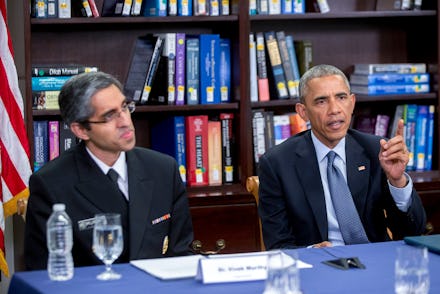Biden's health secretary pick could tell us a lot about the future of health care

As we finally near the close of the year that just won't end, President-elect Joe Biden's transition team is preparing to jump in head first to the executive branch. The Biden administration will be tackling multiple simultaneous and compounding crises, all under the shadow of the coronavirus pandemic and the Trump administration's lack of response to it. In order to address the crisis head-on, Biden is going to need an executive cabinet stacked with both people he trusts to get the job done as well as individuals who are conducive to achieving his political goals. For the past week the Biden transition team has been slowly releasing names of appointments and nominees. Some important nominations are still forthcoming, though, like Biden's health secretary, who will lead the Department of Health and Human Services.
NBC News's White House correspondent Peter Alexander reported Wednesday that in addition to considering New Mexico Gov. Michelle Lujan Grisham (D) for the top health post, the Biden transition team has put up two more names for vetting: Obama administration Surgeon General Vivek Murthy and Rhode Island Gov. Gina Raimondo (D). The Department of Health and Human Services will play a critical role in addressing the coronavirus crisis, and it will also be tasked with charting the future of health care in the U.S. — and particularly how much of a role the federal government should play in it. It's likely then, that Biden's pick for HHS secretary could tell us a lot about his health care plans.
Both Murthy and Raimondo are undoubtedly qualified for the position, but they come from different backgrounds. Picking Raimondo would indicate a more centrist Democratic plan for health care policy, while choosing Murthy would signal a comparatively more progressive approach.
Here's why: As Rhode Island governor, Raimondo led her state to a remarkably low unemployment rate, tripled community college graduation rates by guaranteeing free college, and guaranteed all-day kindergarten for every Rhode Island child. But Raimondo didn't come from a public service background — she ran her own venture capital firm, which among other services, funds private health care companies.
Murthy, on the other hand, worked as a doctor and served as vice admiral in the Public Health Service Commissioned Corps while also serving as surgeon general for the Obama administration. Murthy has gone on record declaring gun violence as a public health issue and loneliness as a chronic health issue, which of course the coronavirus pandemic has exacerbated.
While Biden beat out Bernie Sanders, the Vermont senator who succeeded in pushing Medicare-for-All into the mainstream political world, the idea that health care is a human right and shouldn't be run like a for-profit business has steadily gained popularity — even before a viral pandemic devastated the country. Coronavirus has created millions of new patients with immediate and long-term care needs, and advocates of health care policy reform say that survivors of the virus shouldn't be saddled with exorbitant medical bills.
But choosing a HHS secretary is a political move, at its core. As Alice Miranda Ollstein reported for Politico, "Though none of these top candidates are particular favorites of progressives, none are raising major red flags on the left. The same is true for health care industry leaders, who oppose Biden’s pledge for adding a public option to Obamacare but are relieved that no hardcore 'Medicare-for-All' advocates are in the running to helm HHS."